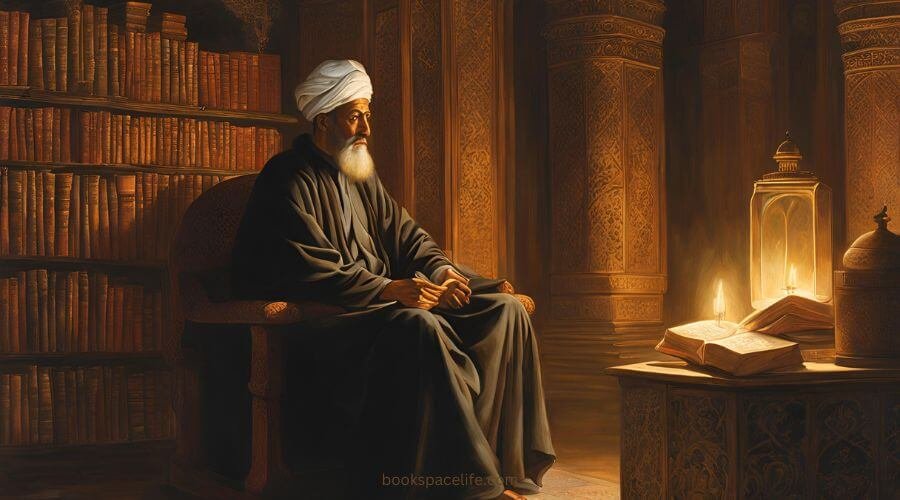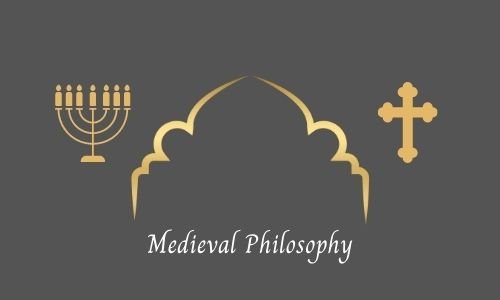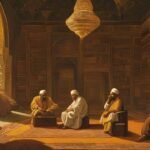Al-Farabi
The Philosopher of the Islamic Golden Age
Abu Nasr Muhammad ibn Muhammad al-Farabi (c. 872–950 CE), often referred to as “the Second Teacher” (after Aristotle, who was known as the First Teacher), stands as one of the most prominent philosophers of the Islamic Golden Age.
Born in the city of Farab (in modern-day Kazakhstan), Al-Farabi’s intellectual journey led him to become a central figure in Islamic philosophy, politics, and logic.
His ideas helped to bridge the classical Greek tradition with Islamic thought, and his work laid the foundation for many philosophical developments in both the Islamic world and later Western intellectual history.
Al-Farabi’s synthesis of Greek philosophy, particularly that of Aristotle and Plato, with Islamic theology and logic had a profound impact on later philosophers, including Avicenna (Ibn Sina) and Averroes (Ibn Rushd), and influenced Western scholars such as Thomas Aquinas.
Al-Farabi’s philosophical contributions spanned many disciplines, including ethics, metaphysics, political philosophy, logic, and epistemology.
His efforts to harmonize reason and faith, as well as his deep exploration of the nature of the soul, the ideal state, and the role of the philosopher in society, have made him a key figure in the history of thought.
To understand Al-Farabi’s work and legacy, it is important to trace his early life, education, major philosophical ideas, and the lasting influence he had on both Islamic and Western intellectual traditions.
Contents

(1) Early Life and Education
Al-Farabi was born in the city of Farab (sometimes referred to as Otrar), which was located in what is now modern-day Kazakhstan.
Although little is known about his early life, it is widely believed that he came from a noble family, likely of Turkish or Persian origin.
His education, however, would be the defining feature of his intellectual journey. He moved to the great cultural and intellectual hub of Baghdad, the capital of the Abbasid Caliphate, which at the time was a center for learning, translation, and philosophical debate.
In Baghdad, Al-Farabi received an education that combined the study of classical Greek philosophy, logic, and Islamic theology.
He is said to have studied under prominent teachers in the fields of philosophy, mathematics, astronomy, and medicine.
He was particularly drawn to the works of Aristotle, Plato, and Neoplatonists like Plotinus, whose ideas were being translated into Arabic and had a profound influence on the Islamic philosophical tradition.
During his studies, Al-Farabi became fluent in both Greek and Arabic, allowing him to access and engage with the rich intellectual tradition of ancient Greece, Persia, and India.
Al-Farabi’s travels also took him beyond Baghdad, to various parts of the Islamic world, where he came into contact with different intellectual traditions and local schools of thought.
He is believed to have spent time in Damascus, Aleppo, and other cities, where he engaged with local scholars and deepened his understanding of philosophy, politics, and the sciences.
This exposure to diverse ideas would influence his philosophical outlook and lead to his development of a distinctive synthesis of Greek philosophy with Islamic thought.
(2) Philosophy and Major Contributions
Al-Farabi’s philosophical work is characterized by his synthesis of Aristotelian logic, Platonic metaphysics, and Islamic spiritual principles.
He sought to integrate Greek philosophical concepts with Islamic theology, arguing that philosophy and religion were not in conflict but could complement each other.
His most famous works are centered on ethics, logic, political philosophy, and metaphysics.
(i) Ethics and the Ideal Society
One of Al-Farabi’s most significant contributions to philosophy was his exploration of ethics and the nature of the ideal society.
Al-Farabi believed that the ultimate goal of human life was to achieve happiness, which could be attained through virtue and reason.
In his view, the virtuous individual was someone who exercised rationality and sought to live in harmony with the divine laws of the universe.
However, Al-Farabi did not view happiness as a solitary pursuit but as something that could only be fully realized in a well-organized society.
In his work Al-Madina al-Fadila (The Virtuous City), Al-Farabi presents a detailed vision of an ideal society governed by philosophical principles.
This society, he argued, would be led by a philosopher-king who embodied wisdom and virtue. Such a ruler would be the wisest and most capable individual, someone who could guide society toward the pursuit of happiness and moral excellence.
Al-Farabi believed that the philosopher-king would help organize society in such a way that individuals could fulfill their potential and live virtuous lives.
This idea of the philosopher-king was influenced by both Plato’s Republic and Aristotle’s concept of the “best polity.”
However, Al-Farabi adapted these ideas to fit within an Islamic framework, where the ruler’s legitimacy was not only based on reason and wisdom but also on the will of God.
His vision of the ideal city sought to create a society that balanced the pursuit of rational knowledge with the moral imperatives of faith.
(ii) Logic and Epistemology
Al-Farabi’s contributions to logic are perhaps among his most enduring and influential. He made significant advancements in the study of syllogistic logic, building on the work of Aristotle and refining the techniques for organizing and analyzing arguments.
Al-Farabi’s work on logic became the foundation for later Islamic philosophers like Avicenna and Averroes. In particular, his writings on syllogisms, definitions, and the nature of logical reasoning were used as textbooks in both the Islamic world and, later, in medieval European universities.
In terms of epistemology, Al-Farabi developed a theory of knowledge that emphasized the role of reason in apprehending the truth.
He believed that knowledge was attained through the interaction between the active intellect (which imparts knowledge) and the potential intellect (the human mind).
This theory was a blend of Aristotle’s notions of intellect and the Neoplatonic view of the transcendent intellect.
Al-Farabi also made significant contributions to the study of metaphysics, where he proposed a model of the universe that was organized hierarchically, with the First Cause (God) at the top and everything else in the universe emanating from this divine source.
(iii) Political Philosophy
In the field of political philosophy, Al-Farabi is known for his works on governance, leadership, and the nature of authority.
His political thought is deeply intertwined with his ethical and metaphysical ideas, particularly his belief that the ideal state is one that fosters the cultivation of reason and virtue.
Al-Farabi’s thoughts on politics were also influenced by his background in Islamic jurisprudence and his desire to reconcile Greek philosophy with Islamic teachings.
Al-Farabi’s vision of politics was based on the belief that society is organized according to natural laws that are derived from the rational and moral order of the universe.
He argued that the political leader’s role was not only to maintain order and justice but also to guide the people toward the fulfillment of their highest potential as rational and virtuous beings.
(3) Influence and Impact
Al-Farabi’s influence on both Islamic and Western philosophy cannot be overstated. His work formed the intellectual backbone for many of the later Islamic philosophers, including Avicenna (Ibn Sina), Averroes (Ibn Rushd), and Al-Ghazali.
His contributions to logic and metaphysics were integral to the development of Islamic Neoplatonism, which in turn shaped the intellectual traditions of both the medieval Islamic world and medieval Europe.
In the West, Al-Farabi’s influence became more pronounced during the Renaissance, when his writings were rediscovered and translated into Latin.
He was recognized as a crucial figure in the transmission of Greek philosophy to the Latin West. His ideas on the relationship between philosophy and religion, the role of reason in politics, and the concept of the philosopher-king influenced the development of Christian scholasticism, particularly in the works of Thomas Aquinas.
In the Islamic world, Al-Farabi’s philosophy remained a cornerstone of intellectual discourse for centuries.
His contributions to logic, metaphysics, and political theory were studied by later philosophers, and his efforts to synthesize Greek and Islamic thought set the stage for the flourishing of Islamic philosophy in the centuries that followed.
(4) Conclusion
Al-Farabi’s life and work represent a unique moment in the history of philosophy, one where Greek philosophical traditions were integrated into the rich intellectual fabric of the Islamic world.
His synthesis of logic, ethics, metaphysics, and political theory, alongside his enduring contributions to the development of philosophy and science, has earned him a lasting place in the history of intellectual thought.
As a philosopher, Al-Farabi’s legacy continues to influence contemporary discussions on the nature of knowledge, ethics, politics, and the role of the philosopher in society.
His vision of an ideal society governed by reason and virtue, along with his insights into logic and human nature, remain relevant today.
The breadth and depth of his intellectual achievements demonstrate his enduring importance as one of the great thinkers of the medieval period.










